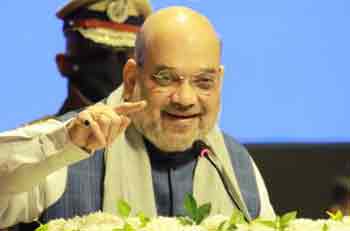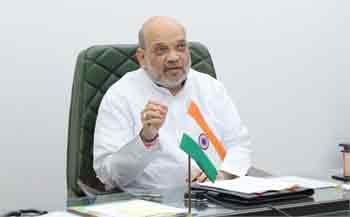The Bharatiya Janata Party (BJP) is at a critical juncture in its political journey. With seven months passing since JP Nadda’s tenure as BJP’s National President effectively ended, the search for the next leader has intensified. Reports suggest that the BJP is poised to appoint a Dalit leader as its next national president, a decision that carries profound political implications. This article explores the potential candidates, the strategic rationale and the political equations shaping this pivotal decision.
Why the BJP Needs a Dalit Leader at the Helm
Addressing the “Upper-Caste Party” Perception
Over the years, BJP has faced criticism for being perceived as a party dominated by upper-caste leaders. In recent decades, appointments to key constitutional positions have revealed a decreasing representation of the Brahmin community, but the party’s image as an elite-dominated organization persists. Appointing a Dalit leader as national president can counter this narrative, broadening the party’s appeal to marginalized communities.
Countering Congress’ Dalit Strategy
The Congress Party’s appointment of Mallikarjun Kharge, a veteran Dalit leader, as its president was a strategic masterstroke. Under Kharge’s leadership, Congress has gained significant traction among Dalit voters, especially in states like Karnataka. To counter this, BJP must present a strong Dalit leader capable of resonating with similar demographics, especially in South India.
Expanding Influence in South India
South India remains one of BJP’s weakest regions, particularly in states like Tamil Nadu, Kerala, and Telangana. A Dalit president from the South could help the BJP penetrate these electorates. This strategy echoes the Vajpayee era, when leaders like Bangaru Laxman and Venkaiah Naidu played crucial roles in building bridges with southern communities.
Potential Candidates for the BJP President Post
1. Arjun Ram Meghwal
Currently serving as the Union Minister of Law and Justice, Arjun Ram Meghwal is a frontrunner in this race. Known for his administrative acumen and extensive experience, Meghwal has earned the trust of BJP’s top brass. His educational background and pivotal responsibilities in Modi’s cabinet make him a strong contender. His appointment could solidify BJP’s support base among the Dalit communities in Rajasthan and neighboring states.
2. Dushyant Gautam
A BJP general secretary and prominent Dalit leader, Dushyant Gautam has a long-standing association with the Rashtriya Swayamsevak Sangh (RSS). His grassroots approach and strategic thinking have helped BJP strengthen its organizational framework in northern states. Gautam’s elevation to the national presidency could serve as a morale booster for Dalit leaders across the party.
3. Baby Rani Maurya
As a former governor of Uttarakhand and currently a minister in the Uttar Pradesh government, Baby Rani Maurya has significant political credentials. Her resignation from the governorship and subsequent return to active politics underscores her importance to BJP’s long-term plans. Maurya’s appointment could resonate with Dalit women voters, providing BJP a unique edge in Uttar Pradesh, a critical battleground for the upcoming general elections.
4. Southern Leaders in Consideration
Names like L. Murugan, G. Kishan Reddy, and K. Annamalai have also surfaced. These leaders hail from South India, and their potential elevation reflects BJP’s broader aim of diversifying its leadership and expanding its geographical influence.
The Political Calculus Behind a Dalit President
1. Aligning with RSS Ideology
The RSS, BJP’s ideological parent, has often faced criticism for lacking Dalit representation in its top ranks. Elevating a Dalit leader to the BJP presidency could deflect opposition criticism and project inclusivity. The move would also reinforce the RSS’s commitment to engaging with all sections of society.
2. Preparing for 2024 Lok Sabha Elections
With the 2024 general elections approaching, the BJP needs to consolidate its vote bank. Dalit voters, who constitute a significant percentage of India’s electorate, could play a decisive role in swing states like Uttar Pradesh, Bihar, and Rajasthan. Appointing a Dalit president could help BJP gain ground in these critical regions.
3. Balancing Regional Representation
BJP’s leadership has predominantly been drawn from North and West India during Modi’s tenure. A Dalit leader from South India or the Northeast could enhance BJP’s national appeal, balancing its leadership structure geographically and demographically.
Historical Precedents in BJP Leadership
During the Vajpayee era, BJP appointed leaders like Bangaru Laxman, a Dalit from South India, as its national president. Similarly, Jana Krishnamurthy and Venkaiah Naidu, both from South India, played instrumental roles in expanding BJP’s presence. However, under Modi’s leadership, the party’s presidents—Amit Shah and JP Nadda—have primarily hailed from the North and West.
The BJP’s next appointment could signify a return to a more inclusive approach, ensuring diverse regional and caste representation in its top ranks.
Challenges in Choosing the Right Candidate
While the decision to appoint a Dalit leader appears strategic, it comes with challenges:
- Internal Resistance: BJP’s internal power dynamics could pose hurdles. Influential leaders from dominant castes might resist such a move, fearing erosion of their influence.
- Credibility of the Candidate: The chosen leader must possess the credibility to unify the party and command respect across regions.
- Opposition Criticism: Any perceived tokenism in the appointment could invite criticism from opposition parties, undermining BJP’s message of inclusivity.
A Defining Moment for BJP
The appointment of a Dalit national president represents more than just a political strategy—it is a bold statement of inclusivity and representation. By addressing its perceived upper-caste bias and expanding its appeal among marginalized communities, BJP can position itself as a truly pan-Indian party. The choice of the next president will not only shape BJP’s electoral fortunes in 2024 but also redefine its identity in the evolving landscape of Indian politics.
The upcoming months will reveal whether BJP takes this transformative step or opts for continuity. Either way, the decision will be a defining moment in the party’s journey toward becoming India’s preeminent political force.















